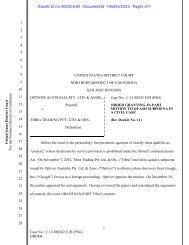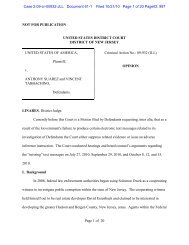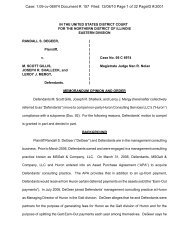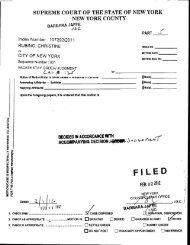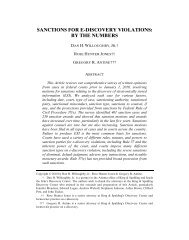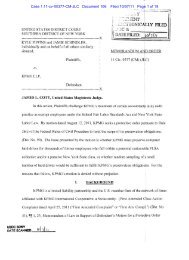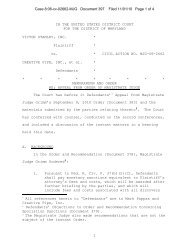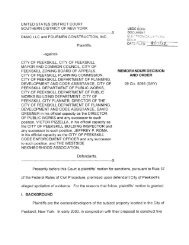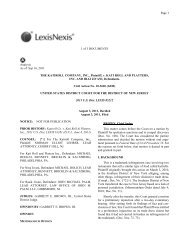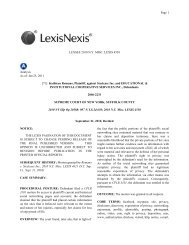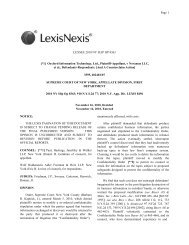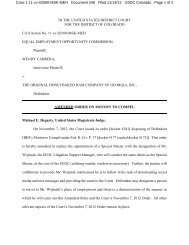Rimkus Consulting Group Inc. v. Cammarata - Ballard Spahr LLP
Rimkus Consulting Group Inc. v. Cammarata - Ballard Spahr LLP
Rimkus Consulting Group Inc. v. Cammarata - Ballard Spahr LLP
You also want an ePaper? Increase the reach of your titles
YUMPU automatically turns print PDFs into web optimized ePapers that Google loves.
Case 4:07-cv-00405 Document 450 Filed in TXSD on 02/19/10 Page 138 of 139<br />
knew in 1996 that it had eight offices in four different states and that as a result, <strong>Rimkus</strong> knew<br />
that <strong>Cammarata</strong> “would never be able to work in every geographical area in which Plaintiff<br />
had performed five (5) jobs in the five (5) previous years.” (Docket Entry No. 322 at 10).<br />
<strong>Cammarata</strong> contends that although <strong>Rimkus</strong> knew such a limitation was unreasonable, <strong>Rimkus</strong><br />
required him to sign an employment agreement restricting postemployment competition<br />
outside the areas where <strong>Cammarata</strong> would work during his employment.<br />
<strong>Cammarata</strong>’s argument that <strong>Rimkus</strong> knew in 1996 that the covenants were<br />
unenforceable is not persuasive. Evidence that <strong>Rimkus</strong> knew about <strong>Cammarata</strong>’s<br />
responsibilities and location is insufficient to establish that <strong>Rimkus</strong> knew that the<br />
noncompetition and nonsolicitation provisions of the Agreement contained unreasonable<br />
prprovisions. Although Texas case law on noncompetition and nonsolicitation restrictions<br />
was clear in 1996, there is no evidence that <strong>Rimkus</strong> knew that the relevant provisions of<br />
<strong>Cammarata</strong>’s Employment Agreement were unreasonable under Texas law. See Safeworks,<br />
LLC v. Max Access, <strong>Inc</strong>., No. H-08-2860, 2009 WL 959969, at *7 (S.D. Tex. Apr. 8, 2009)<br />
(granting summary judgment on a claim for attorneys’ fees under § 15.51 because even<br />
though Texas law was clear, there was “no evidence that Safeworks representatives actually<br />
knew that the relevant non-solicitation provisions were unreasonable under Texas law”). The<br />
reasonableness of the limits in part depended on <strong>Cammarata</strong>’s work during his employment<br />
with <strong>Rimkus</strong>. <strong>Cammarata</strong> has failed to raise a disputed fact issue material to determining<br />
whether <strong>Rimkus</strong> knew in October 1996 that the posttermination restrictions on competition<br />
in his Employment Agreement were unreasonable. This court grants <strong>Rimkus</strong>’s motion for<br />
138



